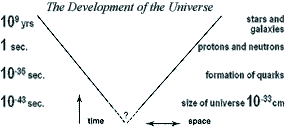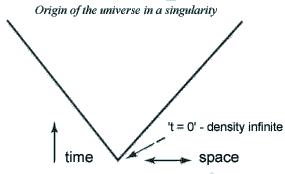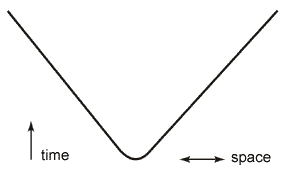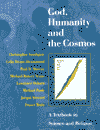The Hawking-Hartle Proposal for the Early UniverseThere is very substantial agreement as to the development of the universe from the first 10-43 second on:
Traditional Big Bang cosmology allowed the space-time diagram to arise from a point, like an ice-cream cone:
This point was then a so-called ‘singularity’ at which values such as the density of the universe would go to infinity and the laws of physics could not hold. The Hawking-Hartle proposal allows the time dimension, the vertical axis of the diagram, to ‘fade away’, to be subsumed into the space dimensions. The diagram therefore originates not from a point but from a curved surface with no boundary or edge, like the surface of the Earth at one of the poles:
Email
link | Feedback |
Contributed by: Dr. Christopher Southgate |







